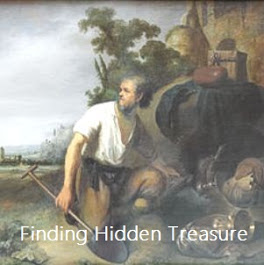My mother died last Friday. It has been a time in which thoughts of God, the afterlife and what we are called to do on Earth to glorify Him have filled my mind. One thought that has been on my mind has been what I've noticed as a stronger emphasis in Christian media (and other media) about the importance of experiencing God.
I do agree that it is important to have a devotional life in which experiencing the reality of God plays a crucial role. It can be seen in church history that there are cycles in which Christians approach God as a set of principles rather than as the ultimate infinite being who created us for relationship to Him. Yet, as one of my theology professors once pointed out, the attempt to correct an error in one direction can often lead to an excess in the opposite direction. It occurred to me that this may apply about the topic of experiencing God.
In our western culture, there has been a move toward having an experience versus increasing the amount of information you take in via the form of a written text. One example is that of museums. A generation ago, many museums had displays with text that accompanied each display. While that has not gone away today, there is a stronger emphasis in these museums of providing a hands-on experience within their displays.
With this in mind, it occurred to me that as I've heard and read more about the desire by Christians to experience God, there could be something missing. Since we are becoming more experience oriented. I fear that this may possibly lead to a relationship with God which takes in far less for us than He intends. Let me explain.
First, let me state clearly that I see NO problem with any believer desiring to experience God in a deeper way. Providing that such a desire is worked out in ways that go along with a good understanding of who God is as laid out in the Bible, I think that is a great thing. However, my concern centers on what would happen if someone's relationship to God is limited ONLY to their experience.
The life of the mind is crucial also to Christian growth in God. Biblical meditation is one of these means. We are commanded to meditate on the Scriptures (14 times in the Psalms we are instructed to ponder God's Word and God's wonderful works). In these thoughts, we are led to an understanding of the depths of God's glory,holiness, love, mercy, wrath against sin, etc. that we might never encounter, or be able to encounter, in our own personal experience of Him. I cannot know, by experience, God's tender care for those who give birth. Yet, I can praise him for His mercy upon child-bearing mothers even if I can never experience this myself.
I am a Christian. Yet, I am also a male, an American, and one whose life has been lived in parts of the 20th and 21st centuries. If I were to limit my relatioship to God to my own experience, I would miss out on so much. I have much to learn about God from other Christians. I can learn from other male and female Christians. I can learn from other American Christians, as well as from those who are not. I can learn from other Christians who have lived in the 20th and 21st centuries, as well as those who lived before my time. Thankfully, many of their journals and writings exist to this day.
God's command to us in this regard was echoed by the Lord Jesus Christ in the New Testamant: "You shall love the Lord Your God with all your heart, and with all your soul, and with all your mind." (Matthew 22:37 NASB quoting Deuteronomy 6:5 ). Note that all three components are needed: heart, soul and mind. As you grow in your relationship to God and experience Him more deeply, grow also in your knowledge of aspects of God which you might never encounter in your own personal experience. Loving Him with your mind will allow you to know and appreciate God's wonders beyond your own personal experiences.







